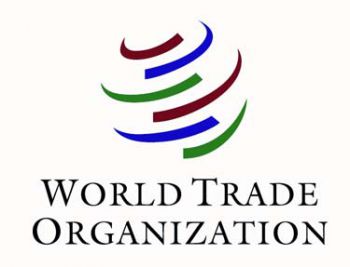Action will be necessary to keep access to lucrative government procurement markets after Brexit
By: Tom Furnival-Adams
Last updated: Thursday, 4 August 2016

Leading experts in international trade at the University of Sussex warn that critical steps need to be taken by the British Government before the UK finally leaves the EU, to assure its access to government procurement markets worldwide.
At present, under the World Trade Organisation’s (WTO) Government Procurement Agreement (GPA), the UK is a member of the GPA only through its membership of the EU. This would mean that by leaving the EU, other GPA members would no longer be obliged to consider trading with the UK in this very significant market. The WTO GPA is made of up 43 parties and the annual value of procurement activities opened up to international competition in 2015 was estimated at $1.3 trillion.
University of Sussex Economics Professor L. Alan Winters, Director of the newly launched UK Trade Policy Observatory and former Head of Research at the World Bank, said: “We need to confirm the UK’s membership of the GPA before we officially leave the EU, or we might lose access to an important global market. In addition, without membership of the GPA, the UK’s obligation to allow foreign firms to bid for its procurement contracts would expire, which would reduce competition and potentially raise serious value for money challenges for UK government spending. As a matter of priority the Government must consider how the GPA can be ratified before Brexit.”
This aspect of the UK’s upcoming status as an individual member of the WTO, post-Brexit, was discussed at the first open meeting of the UK Trade Policy Observatory (UKTPO). The UKTPO is a University of Sussex initiative to provide independent expert comment and analysis as the UK reconfigures its trade policy outside the EU, and is launched in partnership with Chatham House.
The UKTPO has released its first report: “The World Trade Organisation: A Safety Net for a Post-Brexit UK Trade Policy?” The UKTPO notes that the WTO is the essential foundation of an orderly world system and that the UK must take every advantage of it that it can. However, because its rules have to cover all world trade, it does not offer the deep connections that we have become used to with our closest trading partners.
Professor Winters said: “Although WTO rules must be the foundation of the UK’s new trade policies, they are less favourable to trade than our current arrangements for well over half our imports and exports. Thus our post-Brexit policies must not only make the most of the WTO but also seek to build deeper trade relations where we reasonably can.”
The report also concluded that:
- The UK should adopt existing EU tariff schedules for imports with the aim of maintaining stability and facilitating swift negotiations with the EU and the other members of the WTO.
- If the EU does not wish to begin formal negotiations until after the Article 50 process is complete the WTO option will govern UK-EU trade relations. This will be costly for both parties relative to the status quo.
- The UK should push to initiate informal discussions and negotiations immediately with non-EU countries that currently receive preferential EU trade agreements to maintain these relationships into the future.
- Reverting to WTO terms of trade under the Agreement on Agriculture poses complexities, as negotiation within and beyond the EU is unavoidable. The UK must make it a priority to initiate these negotiations, as concluding them is in the best interest of both the UK and the EU.
- Access to the worldwide services market will be seriously reduced under the WTO option and the UK should aim as a priority to maintain access to the EU-27 and other markets in which we currently receive favourable terms at levels as close as possible to current conditions.

